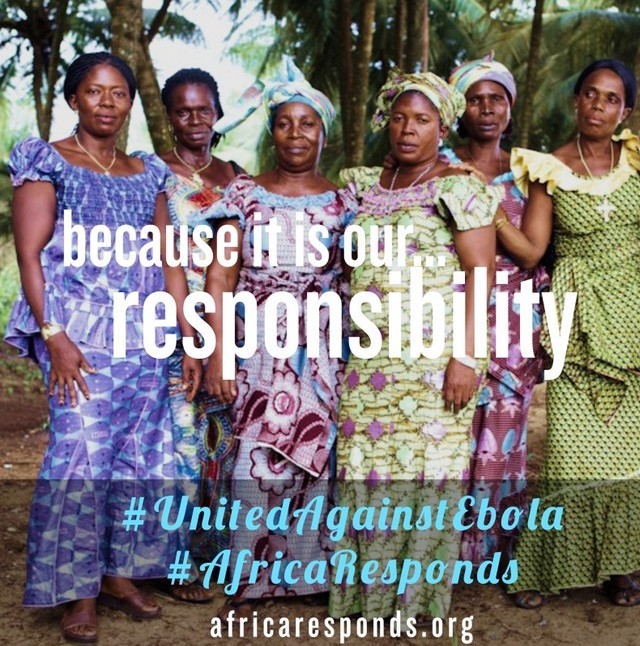 Africa Responds is an online Ebola response initiative launched by TMS Ruge, a U.S.-based entrepreneur from Uganda and Ethiopian-born Solome Lemma, Founder of the NYC-based NGO Africans in the Diaspora.
Africa Responds is an online Ebola response initiative launched by TMS Ruge, a U.S.-based entrepreneur from Uganda and Ethiopian-born Solome Lemma, Founder of the NYC-based NGO Africans in the Diaspora.
The Deseret News National Edition
By Kimberly Curtis
The idea came to TMS Ruge one evening in September while at home in New York, skimming Twitter for stories on Ebola. A native of Uganda who grew up in East Africa and the U.S., Ruge was struck that much of the coverage depicted Africans only as victims. Little mention was made of their potential role in wiping out the deadly epidemic.
As an entrepreneur and communications consultant, Ruge, 38, understands the power of ideas and information. He figured Americans needed to be made more aware that Africans were providing most of the frontline care. He was also determined to do something about it.
He approached his friend Solome Lemma, an immigrant from Ethiopia who is executive director of Africans in the Diaspora, an organization based in New York that works to connect Africans living in the U.S. to development projects back home.
Together they launched Africa Responds, an online fundraising initiative that partners with four African-led organizations working in Liberia. In less than two months, their campaign raised nearly $20,000 and significantly raised the profile through social media of African efforts against Ebola.
Ruge and Lemma are among a new generation of the U.S. African diaspora determined to contribute to the development of their home continent, including the fight against Ebola.
“We want to insert ourselves into the conversation because the Africans on the ground are the ones really doing the work, but it is the international organizations getting the credit,” said Ruge. “If people are too busy trying to stay alive, they don’t really have the ability to tell their stories. But if we are here to share those stories, it helps in the fight.”
The U.S Census Bureau estimates that 1.5 million people born in Africa now live in the United States. Another 2 million self-identify with the diaspora because they have dual citizenship or grew up in Africa. Almost half of the diaspora has arrived since 2000, with Liberia and Sierra Leone — two of the countries at the epicenter of the Ebola crisis — making up 20 percent of these recent arrivals.
Africa Responds and its partners have an advantage in fighting Ebola that most international aid agencies lack: Knowledge of local languages and culture goes a long way in educating people about the disease and convincing them to change daily habits.
Above all, these groups enjoy Africans’ trust, gained through years of living and working in local communities, many of which are suspicious of outsiders and therefore often bypassed in international aid efforts.
Read more »
—
Related:
Ebola Deaths Reach 6,900 in West Africa, UN Says One Million Face Hunger
Ethiopians arrive in West Africa to fight Ebola
Ethiopia Holds Farewell Gala for Volunteer Doctors Headed to Ebola-Hit Countries
Africa Sets Up $28.5m Ebola Crisis Fund
Don’t Let Ebola Dehumanize Africa
5,000 Ebola Health Care Workers Needed In West Africa: WHO
Ethiopia to Deploy 210 Health Workers in Ebola-Hit West Africa
In first case, Doctor in New York City is Diagnosed With Ebola
Cuba’s Impressive Role on Ebola
Ebola: Africa’s Image Takes a Hit
U.S. Embassy: No Confirmed or Suspected Cases of Ebola in Ethiopia
Ethiopia Launches Ebola Testing Lab to Combat Epidemic
Join the conversation on Twitter and Facebook.

























